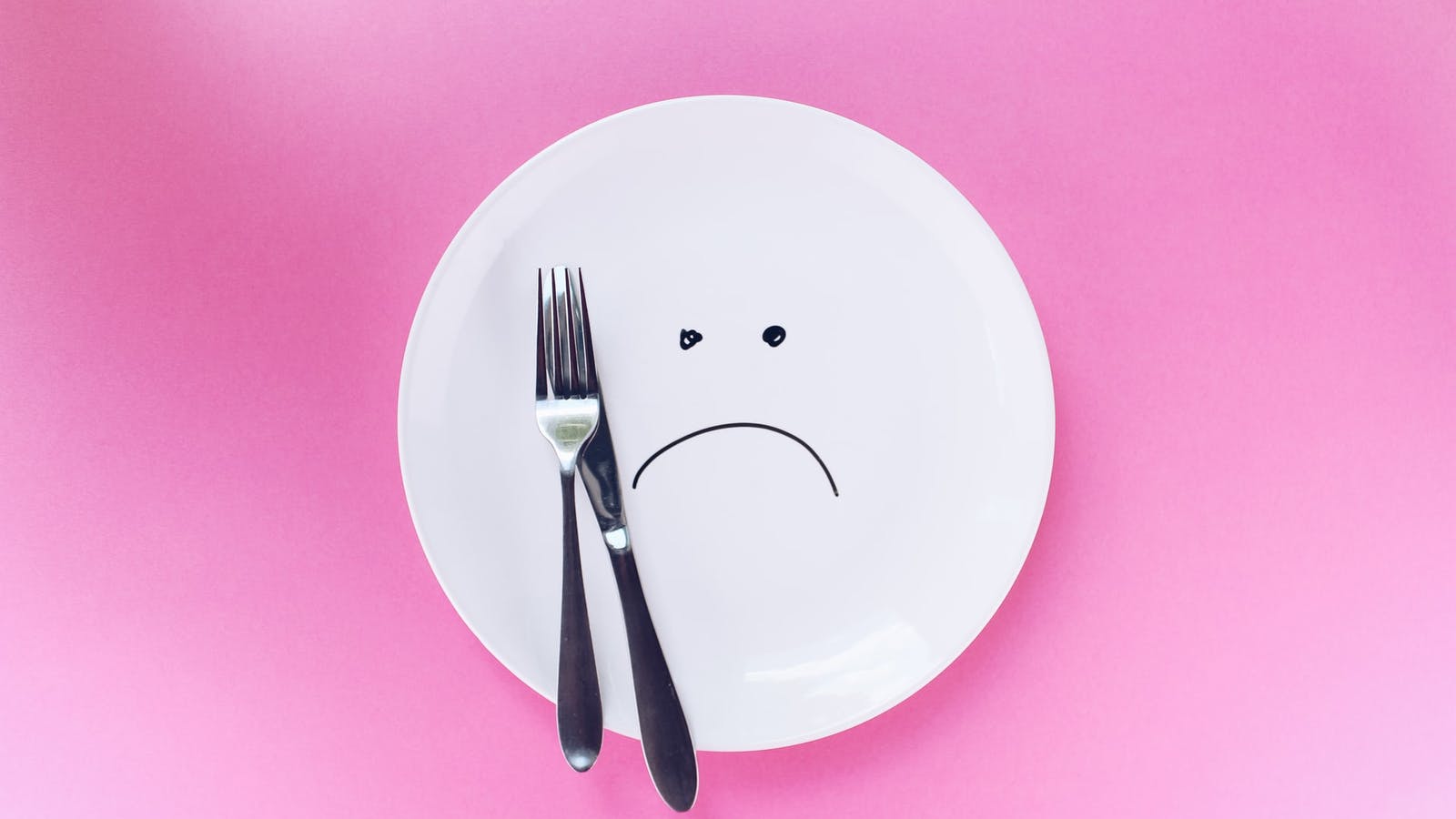In this summer period when diets are king. We only talk about “ the bikini goal ” and “ how to lose the 2 or 3 kilos gained during confinement without making any effort ”. As explained in the article “ Why Diets Don’t Work ,” excessive dieting is not beneficial for mental and physical health. Diets and this cult of thinness can in particular lead to eating disorders, which are more quickly called TCA, namely anorexia and bulimia, two significant illnesses which generally involve a significant loss of weight.
Anorexia and its psychological causes
How to detect anorexia? From a medical point of view, anorexia is a symptom that corresponds to loss of appetite. This symptom can be temporary or it can become chronic.
Anorexia nervosa is the rejection of all food with a phobia of weight gain, calories and/or taking up too much space.
This fear of gaining weight and becoming obsessive can have multiple causes:
- The person may have had a difficult relationship when younger with someone close to them who was overweight.
- She was able to launch a negative interpretation linked to overweight people.
- She believes that to be beautiful and have a nice body it is imperative to be thin.
The fear of taking up too much space can, for its part, be found in people who, as children, had the feeling of not having their place within the family. The fear of disturbing which can lead to a feeling of devaluation. A deep guilt of living is often present in people who have felt abandoned, rejected or even unloved.
According to Jacques Martel, author of “Grand dictionary of discomforts and illnesses”, anorexia is fundamentally the need to fill an inner void with emotional nourishment. The subject needs his mother's unconditional love and acceptance. Although anorexia is most often found in adolescence, it also exists in babies and young children and even adults.
Anorexia, unlike obesity, is the attempt to starve an inner void so small that it will disappear and no longer require anything at all.
For boys, a good method is to gradually accept their femininity or their intuitive and emotional character in order to resolve their anorexic state.
Bulimia and its psychological causes
How to detect bulimia? Bulimia is characterized by a large ingestion of food in a very limited time and leading to gastric discomfort, this can be during a meal or outside of a meal in secret. It may or may not lead the person to vomit for fear of gaining weight or gaining extra pounds.
This disorder often expresses an emptiness, a lack whose origin is found in feelings of abandonment, of not being loved or even of rejection.
According to Jacques Martel, bulimia has the same internal causes as obesity and anorexia. The subject eats excessively to satisfy himself completely or to find a form of love and affection. Food symbolizes, in fact, life, love and emotions. The bulimic is trying to emotionally fill a deep void inside him or her, a self-hatred so great as disgust or contempt that he or she wants to fill that void at all costs. He prefers to let himself be dominated by food, life, rather than opening himself up to life.
Anorexia & bulimia, how to overcome it?
If you or someone you know suffers from anorexia or bulimia, here are some tips for regaining a healthy relationship with food.
- Treat the psychological sphere and stress
Both anorexia and bulimia are a form of self-destruction that may be unconsciously motivated by guilt about living.
It is therefore necessary to release the patient's emotional memory, the conflict generating such a symptom, so that he returns to a balanced diet and regains both physical and mental health.
It is important to clearly differentiate between the trigger and the cause of the disease. Anorexia and bulimia are underlying illnesses. They are born from childhood discomfort and can perfectly remain asleep for several years under the person's control. A trigger will wake them up, such as going on a diet. It is therefore important to remain vigilant because phrases such as “ you should lose weight ” or “ you have lost weight, that’s good ” are not to be taken lightly. They can have more or less impact depending on the person in front of you.
In any case, the anorexic and the bulimic are two sensitive subjects that it is important to respect. Just because the illness can't be seen physically doesn't mean it isn't painful.
It is important that the person suffering maintains physical activity through sport to free themselves from stress and negative emotions. Gentle sports like yoga or swimming can help a lot on a psychological level. Be careful not to indulge in too much sport. No need to spend hours on it, a few minutes a day are enough.
The person should first set up a strict routine with habits, tips, moments of well-being allowing them to help them manage their stress in difficult times. Little by little, she regains pleasure and the desire to live. She will then need this routine less and less.
- Treating the physical sphere with the naturopathy method
Naturopathy is a good method to support psychological monitoring to allow the suffering individual to reconnect with food and their body. Especially since it adapts to each metabolism. Naturopathy does not in any way advise a strict diet, it does not count any calories. It aims for quality and not quantity. It simply provides tips for a personalized lifestyle to enable the individual to eat better and be in better health. If necessary, the extra pounds will disappear naturally and the necessary pounds will take their place. Naturopathy helps you regain your healthy weight. She worships health and not thinness.
In anorexia, certain plant-based food supplements help to stimulate the appetite thanks to their bitter substance, known as aperitifs. They also activate the work of the liver and gallbladder to promote good digestion. Other supplements are intended to strengthen the assimilation of nutrients in order to promote weight regain.
- Fenugreek is the herb of preaching for subjects who have lost a lot of weight and have little appetite. It comes in the form of small orange seeds with a recognizable odor which can sometimes “type” the perspiration of those who consume it.
- The roots of Yellow Gentian, Wild Chicory and Ginger Rhizome are bitter tonics. They are taken 15 minutes before a meal to stimulate the appetite.
- Spirulina and Klamath are freshwater algae very rich in minerals, amino acids and chlorophyll, they are almost a complete food in themselves, it is recommended to compensate for any risk of malnutrition in the event of weight loss. The “tablet” form should be preferred over the powder given the smell which could be even more off-putting.
- Moringa is a plant native to India. These leaves are rich in many nutrients, in remarkably high quantities: calcium, iron, potassium, magnesium, vitamins, protein, the 8 essential amino acids, plus various trace elements. It strengthens weakened organisms, stimulates the appetite and helps to compensate for any risk of deficiency.
- Lemon and grapefruit essences contain limonene in very large quantities which whets the appetite, helps digestion by combating heartburn, nausea and activating liver detoxification.
In terms of the plate, eating what we want and what makes us happy will already be good. Here are some tips and some foods to include in all meals, breakfast, lunch and dinner.
- Foods that “slip” like purees, compotes, broths and soups will be taken easily: “to use and enrich. »
- You can enrich in volume (put more food) or in energy (add sugar, proteins, oil, which are caloric in a small volume and therefore will not increase the content of the plate). Preferably we enrich in calories with skimmed milk powder, whole egg or egg yolk, slice of mixed ham, Kiri type processed cheeses for savory preparations, which allows us to provide proteins which will maintain the muscle mass of the person.
- Dishes are flavored with good fats such as olive, walnut, sesame and hemp oils to increase the taste of the dishes.
- For sweet preparations, we enrich with sweetened condensed milk, sugar, honey, skimmed milk powder, dried fruits in desserts such as rice pudding, semolina pudding.
- As for aromatic herbs, it is chervil that excites hunger, fresh, dried or frozen. Dry and frozen, use more than fresh to obtain its orexigenic properties, that is to say, stimulate the appetite.
- Eating cold rather than hot generally helps people who lose their appetite following treatments. In fact, the “smoking” smells of food coming out of an oven can nauseate them more or, on the contrary, stimulate their appetite, depending on who is cooking! Gazpacho, cold soup recipes made with tomatoes, peppers, cucumbers and onions are great alternatives to hot soups if the latter are not tolerated. To be adapted on a case by case basis.
- Small fruits such as berries: strawberries, raspberries, blackcurrants, blueberries, blackberries; kiwis, clementines, apples, pears, pineapples, peaches, apricots are full of sweet water to taste and relatively well set.
- In a Blender, you can make a smoothie of several of these fruits by adding a little water and a pinch of cinnamon or ginger to make it more invigorating and enrich it with skimmed milk powder.
- Raw vegetables, radishes, carrots, spinach, young shoots, salads, tomatoes, cucumbers, avocados accompanied by a yogurt sauce, chopped chives and a squeeze of lemon, are refreshing and easy to eat. Enhanced with sprouted seeds, they are a concentrate of vitality and live food with a high enzymatic content.
- Ensure sufficient protein intake to offset the risk of malnutrition if loss of appetite leads to weight loss. Integrate the meat in small pieces: diced chicken, minced meat in pasta, ham mixed in soups, grated cheese on preparations, diced Emmental in a salad, fromage blanc, combined with a rice pudding compote with raisins for dessert.
- Chicken broth with vermicelli pasta is a good rehydration drink with the salt it provides and which is strong for the body with the starchy foods included in it. Adding small cubes of tofu, flaked seaweed or small pieces of chicken enriches it with protein.
- Use very aromatic powdered spices such as ginger, cinnamon, anise, curry.
Anorexia and bulimia, scientific causes?
Sergei Fetissov's team from Inserm studied the links between the intestine and the brain on eating disorders such as anorexia and bulimia. According to this study, a bacterial protein called CIpB could be involved in the appearance of these eating disorders.



